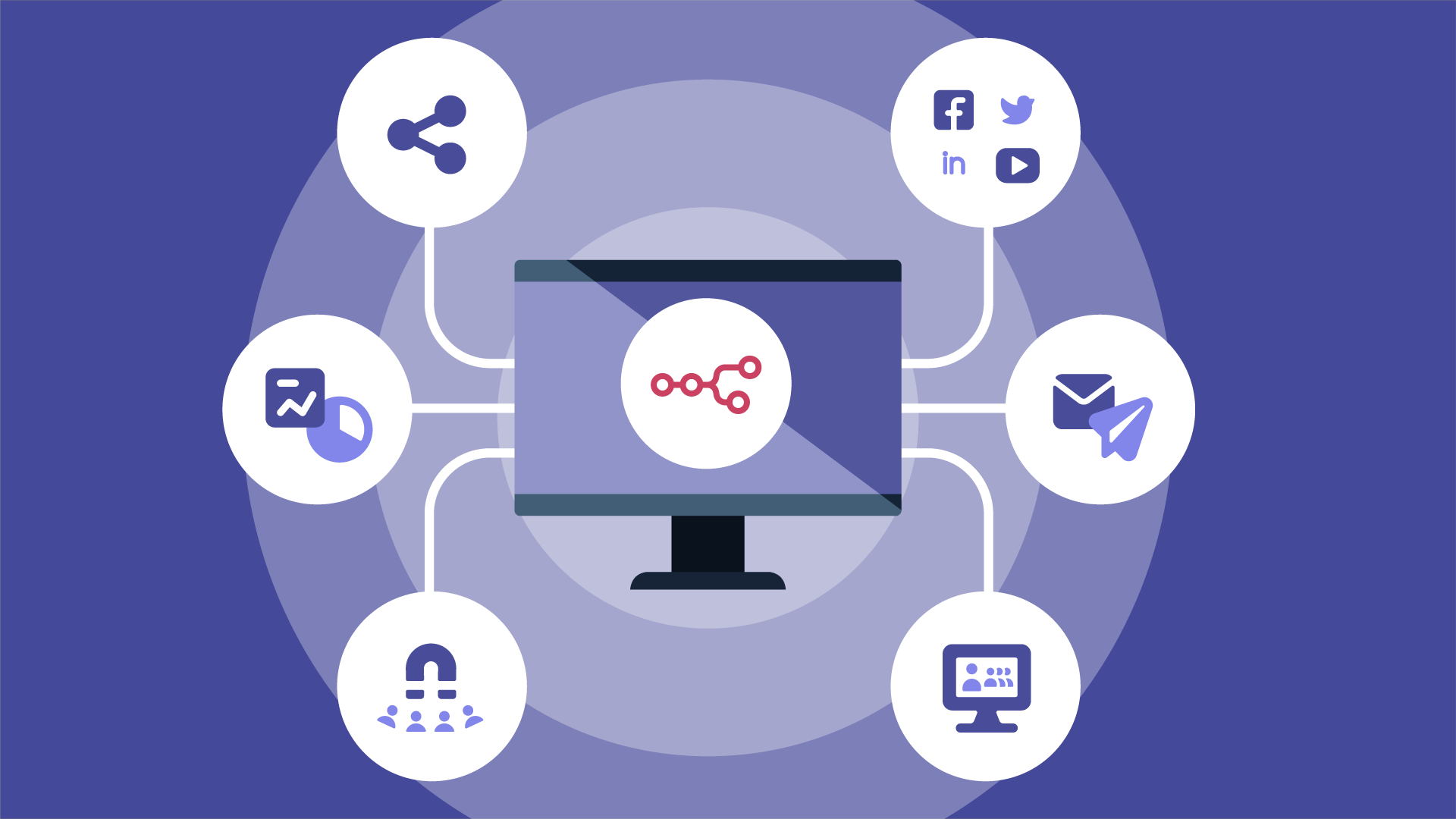In 2025, marketing is more data-driven, personalized, and automated than ever before. Businesses of all sizes are leveraging marketing automation platforms to streamline their campaigns, boost conversions, and enhance customer engagement. With so many tools available, choosing the right platform can be overwhelming. This guide compares the leading marketing automation platforms of 2025 to help you make an informed decision based on your goals, budget, and business needs.
What Is a Marketing Automation Platform?
A marketing automation platform is a software solution that automates marketing activities such as:
- Email campaigns
- Social media scheduling
- Customer segmentation
- Lead nurturing
- Analytics and performance tracking
- Customer relationship management (CRM)
These tools allow marketers to target the right audience, deliver timely messages, and improve overall efficiency.
Why Marketing Automation Is Crucial in 2025
In 2025, customer expectations are higher than ever. Audiences demand personalized content and seamless digital experiences. Marketing automation platforms help businesses:
- Scale campaigns effortlessly
- Personalize communication using AI and analytics
- Improve lead conversion with timely follow-ups
- Gain deep insights through performance metrics
- Align sales and marketing teams via shared data
Top Marketing Automation Platforms in 2025
Let’s compare the top-rated platforms for 2025 based on features, usability, integrations, and pricing.
1. HubSpot Marketing Hub
Best for: Small to medium-sized businesses and growing enterprises
Starting Price: Free tier; paid plans from $50/month
Key Features:
- Robust email automation
- Smart workflows with conditional logic
- CRM and sales tools included
- AI-powered content optimization
- Multi-channel marketing: email, social, and ads
Pros:
- User-friendly interface
- Excellent customer support and onboarding
- Integrated CRM and reporting
Cons:
- Gets expensive with scale
- Some advanced features locked in higher tiers
2. ActiveCampaign
Best for: E-commerce, agencies, and lead-driven businesses
Starting Price: $29/month (based on contact volume)
Key Features:
- Dynamic email content
- Behavior-based automation
- Lead scoring and tagging
- SMS and site messaging
- Integrations with Shopify, WooCommerce, and Salesforce
Pros:
- Highly customizable workflows
- Predictive sending powered by AI
- Excellent deliverability rates
Cons:
- Slight learning curve
- No free plan
3. Klaviyo
Best for: E-commerce brands
Starting Price: Free up to 500 contacts; paid plans from $45/month
Key Features:
- Deep Shopify integration
- Revenue-based campaign performance
- Smart segmentation using real-time data
- SMS and email marketing automation
Pros:
- Built for e-commerce success
- Strong ROI tracking features
- Intuitive dashboard
Cons:
- Higher cost as contact list grows
- Not ideal for B2B companies
4. Marketo Engage by Adobe
Best for: Enterprises and large-scale B2B marketing
Pricing: Custom
Key Features:
- Enterprise-level campaign automation
- AI-driven personalization
- Multi-touch attribution
- Advanced analytics and ABM tools
- Integration with Adobe Experience Cloud
Pros:
- Ideal for complex, high-volume campaigns
- Powerful insights and reporting
- Highly scalable
Cons:
- Expensive and complex setup
- Requires technical resources
5. Mailchimp (2025 Version)
Best for: Freelancers and startups
Starting Price: Free tier; paid plans from $13/month
Key Features:
- Easy-to-use email builder
- Basic automation workflows
- Creative AI assistant
- Landing pages and surveys
- Social media publishing and ads
Pros:
- Great for beginners
- Affordable pricing
- Lots of built-in templates and guides
Cons:
- Limited advanced features
- Basic reporting tools
6. GetResponse
Best for: SMBs and content-focused businesses
Starting Price: $19/month
Key Features:
- Email marketing automation
- AI-powered funnel builder
- Built-in webinar hosting
- Autoresponders and sales pipelines
- A/B testing and analytics
Pros:
- Excellent all-in-one platform
- Affordable and scalable
- Unique webinar tools
Cons:
- Not ideal for large-scale automation
- Interface can feel dated
7. Salesforce Marketing Cloud
Best for: Large enterprises with complex needs
Pricing: Enterprise-level, custom quotes
Key Features:
- Omni-channel campaign management
- Deep personalization and segmentation
- Real-time customer journey tracking
- Data-driven insights with Einstein AI
- Social listening and engagement
Pros:
- Comprehensive marketing ecosystem
- Enterprise-grade security and support
- Seamless CRM integration
Cons:
- High cost of ownership
- Steep learning curve
How to Choose the Right Marketing Automation Platform
When selecting a tool, consider these factors:
1. Business Size and Goals
Startups might prefer Mailchimp or GetResponse, while enterprises may need Salesforce or Marketo.
2. Budget
Make sure to account for future costs as your contact list grows or needs become more complex.
3. Ease of Use
Some platforms offer intuitive drag-and-drop editors while others require technical expertise.
4. Integrations
Ensure compatibility with your CRM, e-commerce store, analytics, and other marketing tools.
5. Customer Support
Look for 24/7 support, training resources, and community forums to help you get the most from the platform.
Final Thoughts
As marketing continues to evolve, automation will remain the key to scaling and succeeding in 2025. The leading marketing automation platforms offer a wide range of features for every business type—whether you're nurturing leads, selling products online, or building complex customer journeys.
By comparing tools like HubSpot, ActiveCampaign, Klaviyo, and Salesforce, you can find the perfect match for your marketing needs. Evaluate your business size, objectives, and tech stack to choose a platform that delivers maximum value, ROI, and long-term growth.
